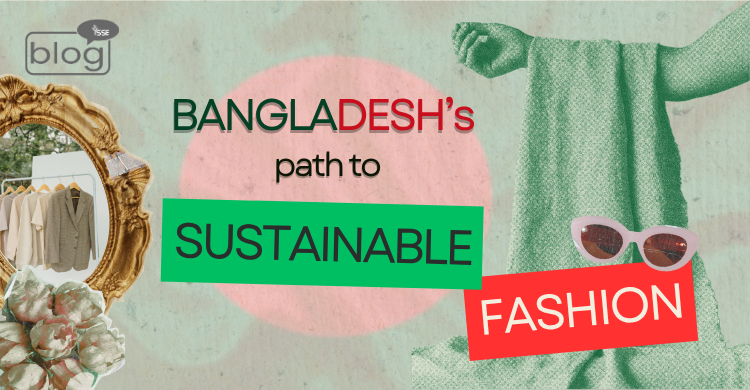Fashion has long been a key element in international culture, but over the last few decades, there has grown a movement towards making fashion more sustainable. It is not an entirely one-directional shift for the international world- it is coming along right here in Bangladesh as well, as the textile industry in the country is a substantial contributor to the country’s economy. As the world struggles with increasing environmental problems, the fashion industry is being challenged to go green, and the textile industry in Bangladesh is responding to this call.
The Increasing Demand for Sustainability
The fashion industry is characterized by speed, churning out a massive amount of new fashion every season. This model of fast fashion, however, has a humongous environmental footprint. From the overconsumption of water to pollution caused by man-made fibers, the globe cannot turn away from the ill effects of fashion on the environment. In nations such as Bangladesh, where the economy depends predominantly on textile production, the risk is much greater. Bangladesh is one of the largest garment-producing nations globally, and the country’s textile sector has been producing jobs as well as growth for a long time. However, as global attention grows regarding protecting the environment for sustainable development, the need to reform and align itself with the planet and future-friendly practices has begun to be recognized. The industry must switch over to Earth and future-friendly practices, too, to embrace green practices in many different ways. One of the most obvious tendencies is towards utilizing more organic inputs in clothing manufacturing. For example, organic cotton is cleaner than conventional cotton since it is produced without the use of chemicals or pesticides. Another idea getting more popular is recycling. To cut the volume of trash entering landfills, businesses are now attempting to reduce items. This is not only eco-friendly, but it also creates a market for upcycled and secondhand clothing that customers concerned with the environment are searching for.
Energy Efficiency and Green Production
Several textile mills in Bangladesh are adopting cleaner production technologies and sustainable inputs. It incorporates limiting the employment of dangerous chemicals and dyes during production, the utilization of energy-efficient machines, and the conservation of water. In a bid to further cut their carbon footprint, some of the mills are even putting solar panels on the structures to provide clean power. Industry sustainability has been promoted by the Bangladesh Garment Manufacturers and Exporters Association (BGMEA). Because of initiatives like green factory construction and the utilization of environment-friendly certificates, BGMEA has promoted sustainable practices. Such initiatives have influenced the industry towards sustainable practices.
Consumer Role in Sustainable Fashion
Even while the textile sector is heading towards sustainability, consumers still have many options. The Bangladeshi textile sector is responding to the growing demand for sustainable and ethical apparel by offering more sustainable products. Consumers are choosing companies that value sustainability more and more as they grow more conscious of the environmental and social price tag of what they purchase. Sustainable fashion brands are gaining traction, especially among younger buyers. They not only desire fashionable clothing but also fashionable clothing from firms that align with their values. As a result of this, many fashion firms are changing their business strategies to meet this need by utilizing sustainable materials and open supply chains.
Challenges and the Path Forward
Although improvement is being made, issues exist to form full sustainability within the Bangladeshi textile industry. Perhaps one of the biggest issues is the expense. Sustainable resources and green technology are expensive compared to traditional procedures, and small and medium-sized factories struggle to integrate these systems. Despite the problems, though, the return on sustainability would be much greater than the barriers. Bangladesh can lead the way towards world sustainability in clothing, as the world elsewhere is moving towards cleaner options. Sustainability has not only positive environmental implications but also new opportunities for the business to grow, innovate, and generate job sustainability in fashion is no longer a dream of utopia but an imperative. Bangladesh’s garment industry is cashing in on this shift, and it is making the world follow towards a greener and more sustainable future. Bangladesh is leading the way to revolutionize the world fashion sector through green materials, greener manufacturing processes, and responding to consumers’ calls for ethical fashion. While still a process to achieve sustainability, utilizing green procedures in Bangladesh’s garment industry is an example that change is already in progress.
To read more blogs, click here.
Writer,
Sudipto Banik
Intern, Content Writing Department
YSSE

